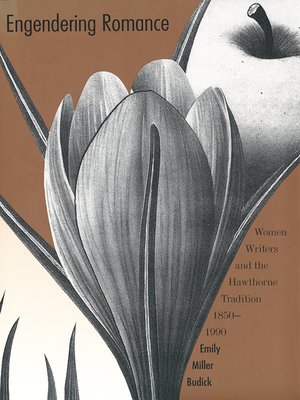Engendering Romance
ebook ∣ Women Writers and the Hawthorne Tradition, 1850-1990
By Emily Miller Budick

Sign up to save your library
With an OverDrive account, you can save your favorite libraries for at-a-glance information about availability. Find out more about OverDrive accounts.
Find this title in Libby, the library reading app by OverDrive.



Search for a digital library with this title
Title found at these libraries:
| Loading... |
This engrossing book describes how four twentieth-century women writers—Carson McCullers, Flannery O'Connor, Toni Morrison, and Grace Paley—have inherited and adapted the classical tradition of American romance fiction.
Emily Miller Budick argues that this tradition, exemplified by the works of Nathaniel Hawthorne, Edgar Allan Poe, Herman Melville, Henry James, William Faulkner, and Ralph Ellison, is inherently skepticist, questioning whether and how we know reality. It is also sharply critical of the patriarchal bias of American culture, which is understood by these writers as a way of evading or settling philosophical doubt. Analyzing such works as The Scarlet Letter, Moby Dick, The Portrait of a Lady, The Sound and the Fury, As I Lay Dying, and Invisible Man, Budick explores this antipatriarchal critique and shows how it enables the twentieth-century women romancers to inherit the tradition. In their writings, however—in McCullers's Heart Is a Lonely Hunter, O'Connor's The Violent Bear It Away, Morrison's Song of Solomon and Beloved, and Paley's short stories—these writers do more than further the concerns of the male authors. They also explore the idea of maternal knowledge and think through alternatives not only to the patriarchal organization of society but to matriarchal constructions as well. Budick offers provocative insights into what it means to inherit a tradition—in particular across lines of gender, but also across lines of race—as she discusses the ways these four women writers revise the genre of romance to accommodate the exigencies of modern American society.






